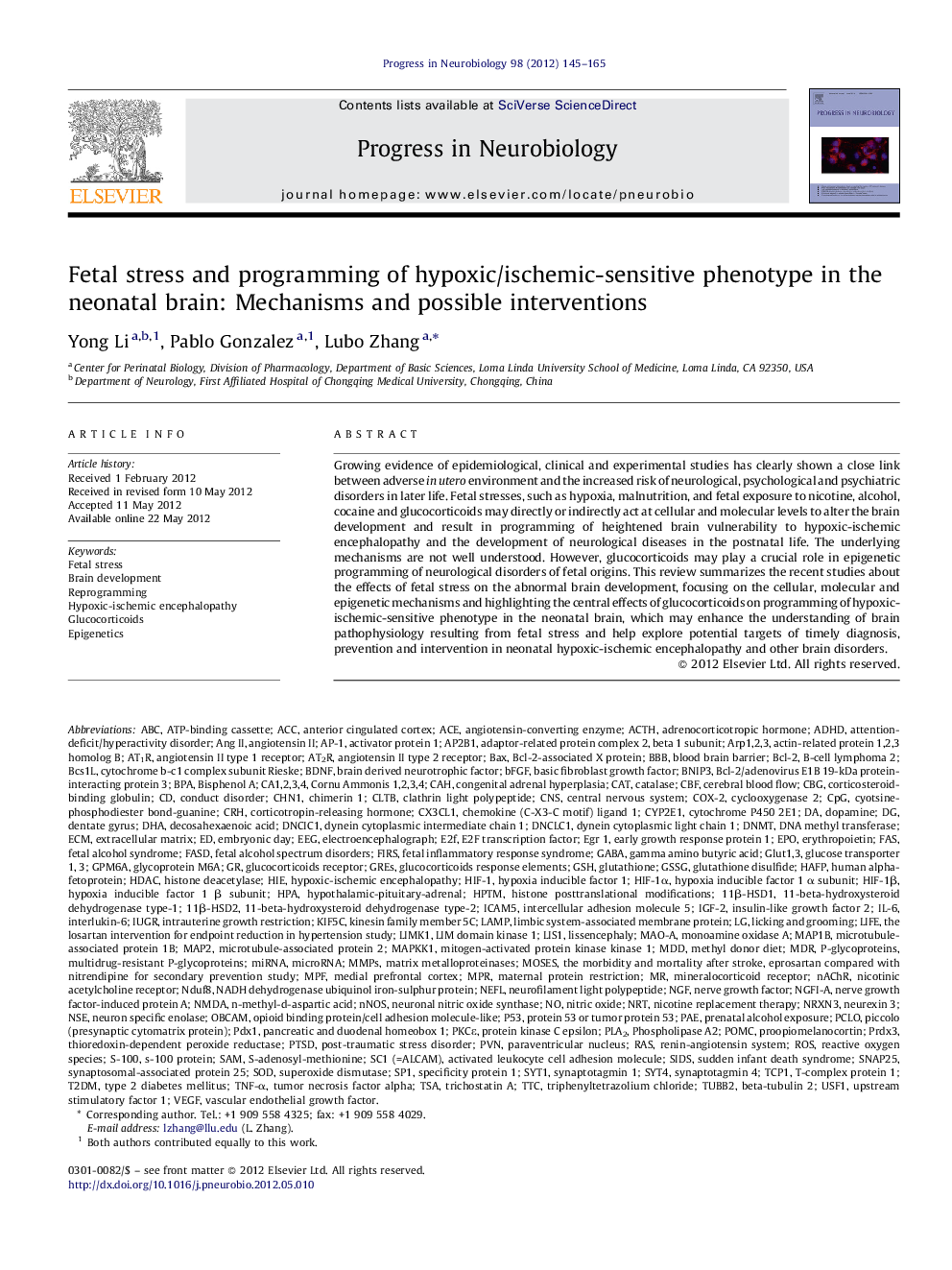| Article ID | Journal | Published Year | Pages | File Type |
|---|---|---|---|---|
| 4353410 | Progress in Neurobiology | 2012 | 21 Pages |
Growing evidence of epidemiological, clinical and experimental studies has clearly shown a close link between adverse in utero environment and the increased risk of neurological, psychological and psychiatric disorders in later life. Fetal stresses, such as hypoxia, malnutrition, and fetal exposure to nicotine, alcohol, cocaine and glucocorticoids may directly or indirectly act at cellular and molecular levels to alter the brain development and result in programming of heightened brain vulnerability to hypoxic-ischemic encephalopathy and the development of neurological diseases in the postnatal life. The underlying mechanisms are not well understood. However, glucocorticoids may play a crucial role in epigenetic programming of neurological disorders of fetal origins. This review summarizes the recent studies about the effects of fetal stress on the abnormal brain development, focusing on the cellular, molecular and epigenetic mechanisms and highlighting the central effects of glucocorticoids on programming of hypoxic-ischemic-sensitive phenotype in the neonatal brain, which may enhance the understanding of brain pathophysiology resulting from fetal stress and help explore potential targets of timely diagnosis, prevention and intervention in neonatal hypoxic-ischemic encephalopathy and other brain disorders.
► Fetal stress reprograms vulnerability to disease later in life. ► Fetal stress acts at cellular and molecular levels to impact brain development. ► Glucocorticoids programming is one of common pathways in such process. ► Epigenetic modification plays crucial roles in programming actions. ► Fetal stress enhances vulnerability to neonatal hypoxic-ischemic encephalopathy.
